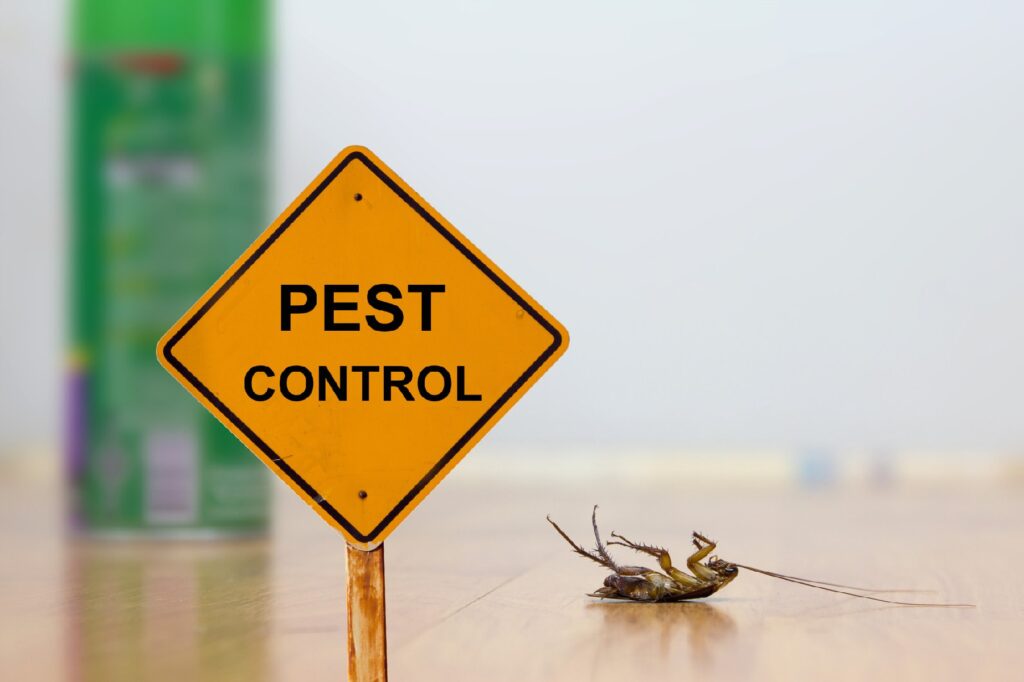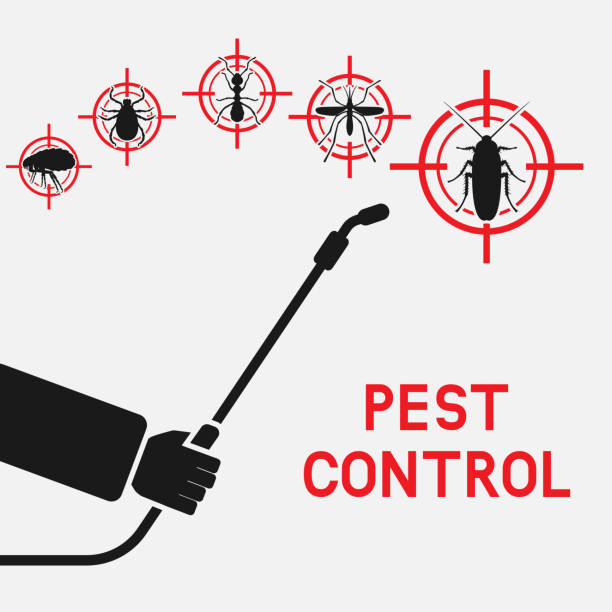Top Parasite Control Solutions to Keep Your Home Pest-Free
From recognizing usual family insects to executing all-natural and chemical control options, each step plays an essential role in securing your living atmosphere. Understanding these numerous pest control options is vital, yet the performance of each approach can differ substantially based on specific conditions.
Identify Common Household Vermin
Home pests can interfere with the convenience and safety and security of any home, making it necessary to recognize them immediately. Typical home insects include pests and rodents that can cause damages to residential or commercial property and pose wellness dangers. Among one of the most common are termites, roaches, and ants.
Ants, specifically, are social insects that can attack kitchens trying to find food. They leave pheromone tracks, which can lead to big swarms if not attended to. Roaches are well-known for their capacity to breed quickly and can cause allergies and asthma. They grow in warm, damp settings and are typically located in restrooms and cooking areas.
Termites, on the various other hand, are wood-destroying pests that can seriously endanger the architectural honesty of homes. Their presence is frequently found through indications such as mud tubes or disposed of wings.
Rodents, including rats and computer mice, are another typical house pest. They are not only a problem however likewise pose health dangers by polluting food and spreading out diseases. Determining these pests early is important for efficient management, taking full advantage of the chances of an effective obliteration and protecting the home atmosphere.
Safety Nets and Upkeep
Efficient bug control begins with safety nets and routine upkeep to minimize the risk of infestations. Property owners must prioritize a thorough inspection of their buildings to identify potential entry factors for pests, such as cracks in walls, gaps around home windows, and spaces under doors. Securing these openings with caulk or climate removing can significantly reduce the possibility of pests getting in.
In addition, preserving a tidy environment is important. Routinely decluttering locations, specifically basements and attic rooms, can get rid of concealing places for pests. coquitlam pest control.
Landscaping techniques contribute also; cutting hedges and trees away from the home can stop parasites from using them as pathways. On a regular basis evaluating and maintaining screens on doors and home windows will certainly even more secure versus undesirable intruders. By implementing these preventative measures and committing to constant maintenance, house owners can dramatically reduce the risk of insect invasions, making sure a much healthier and a lot more comfy living atmosphere.
All-natural Insect Control Techniques
Many all-natural bug control techniques use ecologically pleasant options to standard chemical treatments. These methods not only minimize harm to advantageous organisms but additionally advertise a much healthier living atmosphere.
One efficient technique is using important oils, such as peppermint or tea tree oil, which can deter numerous parasites as a result of their strong fragrances. One more popular option is diatomaceous earth, an all-natural powder originated from fossilized algae that can eliminate bugs by dehydrating them upon contact.
Companion growing is likewise a helpful method; certain plants, like marigolds or basil, can repel parasites while drawing in useful bugs. Furthermore, introducing natural predators, such as ladybugs for aphid control, can dramatically minimize insect populations without chemicals.

Ultimately, incorporating these natural parasite control techniques can create a lasting and efficient parasite monitoring approach, ensuring your home remains pest-free while aligning with environmental conservation efforts.
Chemical Pest Control Options
When encountering consistent parasite problems, chemical pest control alternatives offer a targeted strategy to managing unwanted microorganisms. These options generally include the usage of pesticides developed to get rid of or hinder insects successfully. Chemical parasite control can be categorized into two primary kinds: pesticides, which target insects, and herbicides, developed for plant bugs.
Insecticides might come in various types, consisting of baits, granules, or sprays, enabling home owners to choose the method that finest fits their requirements. Sprays can provide immediate results, while baits may use more prolonged control. It is necessary to choose products that are proper for the certain kind of bug being attended to, in addition to risk-free for use within a domestic atmosphere.
While chemical insect control can yield rapid outcomes, it is critical to adhere to tag directions carefully to reduce risks to human beings, pet dogs, and valuable pests. Integrating chemical methods with preventative procedures, such as sealing entry factors and preserving cleanliness, can boost efficiency and decrease the likelihood of future problems. By employing liable methods, chemical pest control alternatives can be a crucial element of a total bug management approach.
Professional Elimination Solutions

Specialist pest control men make use of click here for more info a selection of methods, including read the article integrated bug monitoring (IPM), which stresses making use of ecologically friendly and safe solutions whenever feasible. This method not just targets the existing problem yet also concentrates on preventing future events by dealing with the underlying problems that draw in insects.
Moreover, expert solutions usually offer guarantees and follow-up visits to ensure the efficiency of their treatments. This ongoing support can give homeowners assurance, recognizing that their living atmosphere is being kept an eye on for any type of indications of insect resurgence. In comparison to do it yourself techniques, which may yield temporary alleviation, specialist extermination services supply resilient results, making them a worthwhile financial investment for keeping a pest-free home.
Final Thought
In summary, keeping a pest-free home demands a diverse approach that incorporates recognition of typical pests, execution of precautionary measures, and factor to consider of both chemical and natural control techniques. Expert elimination services act as a crucial resource for attending to severe problems. By embracing incorporated bug management approaches, property owners can ensure a long-lasting solution that focuses on safety and efficiency, ultimately securing living spaces from unwanted burglars while promoting a much healthier environment.
When dealing with persistent insect infestations, chemical insect control alternatives provide a targeted strategy to managing undesirable microorganisms - coquitlam pest control. Chemical insect control can be classified into 2 major types: insecticides, which target pests, and herbicides, created for plant parasites

These services utilize skilled parasite control specialists who straight from the source carry out detailed evaluations to determine the extent of an invasion and the certain parasite species included.In recap, maintaining a pest-free home requires a diverse approach that includes recognition of usual insects, implementation of preventive steps, and consideration of both chemical and all-natural control approaches.